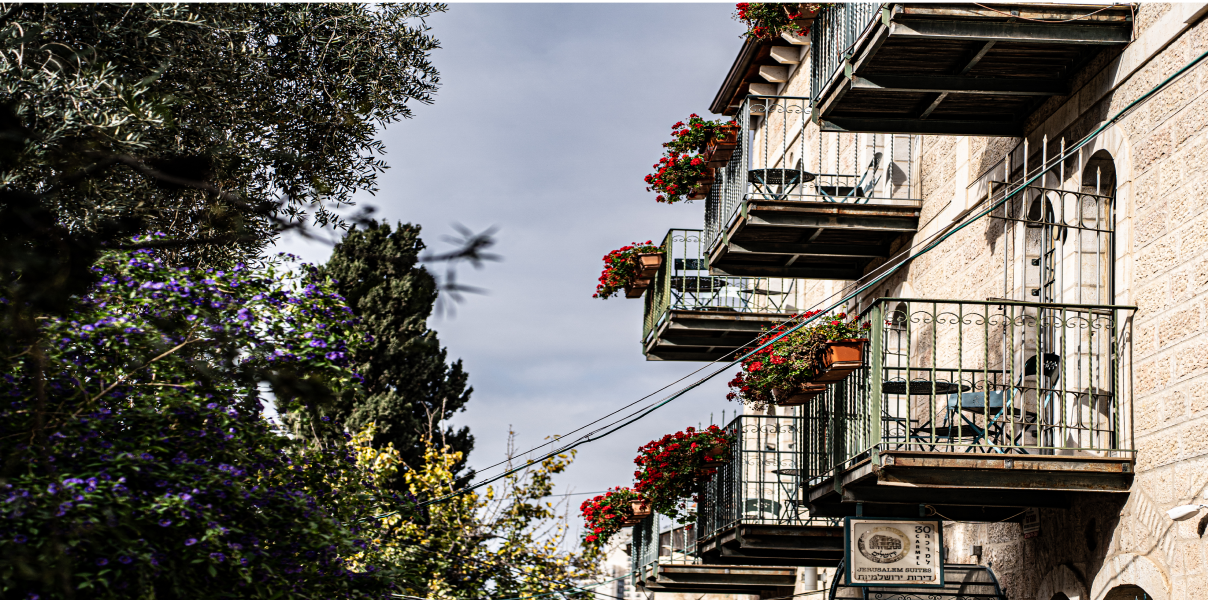Finding the perfect place to call home is a key part of making your Aliyah journey fulfilling and seamless. Renting a home in Israel offers you the flexibility and convenience needed to explore your new surroundings at your own pace. Whether you’re looking for a short-term solution or a long-term residence without the commitment of buying, we’re here to guide you every step of the way.
Renting a Home in Israel
Main Steps for Renting a Home
1 View the Property
Reach out to the property owner or agent to arrange a viewing, preferably during daylight hours. Consider connecting with potential neighbors to gather additional information about the asset and its surroundings.
2 Negotiate the Leasing Terms
Once you’ve found a property you like, you should try to negotiate the lease terms with the owner or the agent including the rent amount, the length of the lease, and any additional terms and conditions mentioned in the deal.
3 Conduct a Prior Inspection
Prior to moving in, it’s important to conduct a move-in inspection with the owner or the agent to identify and document the condition of the property and any pre-existing damages or issues.
4 Sign the Lease Agreement
After understanding and accepting the lease terms, you’ll need to sign a lease agreement, which is a legally binding contract outlining the rights and obligations of both the future tenant and the property owner. You might want to consider going over the lease agreement with a native Israeli you trust or a proffesional lawyer.
5 Pay the Agreed Upon Rental Fees
Before moving in, you may be required to pay a security deposit, which is usually equivalent to one or two months’ rent, as well as the first month’s rent in advance.
6 Guarantor
In Israel, it is extremely common for the property owner to request a guarantor for the deal. A guarantor is someone who agrees to take responsibility for the lease obligations if the tenant fails to fulfill them. This process, known as (Arvut), is a common practice to provide additional security for property owners when renting out a property.
Some Helpful ‘Insider’ Tips for Renting a Home in Israel
Now that you know the basic guidelines for renting a living space, here are some additional helpful ‘insider’ tips for renting a home in Israel:
- Start your search early – Begin your search at least a month or two before you plan to move in, as the rental market in Israel is extremely dynamic. Most leases end and begin at the end of July/ beginning of August during the summer school break, so it’s advised to begin looking as early as April or during Passover
- Use a reputable real estate agent – While searching on your own may be less expensive, a good agent can help you save time navigating the rental market, find properties that meet your needs, and stay within your budget
- Be prepared with the necessary documents – When renting a property in Israel the owners or real estate agents may request documents such as ID cards, work contracts, and references before progressing into the agreement phase. Keep these documents handy for a smooth process
- Understand the rental contract – Prior to signing, pay close attention to details such as the rent amount, security deposit, and lease duration. If there is a language barrier or legal terminology you don’t understand, seek consultation with a lawyer specializing in real estate to ensure clarity and avoid potential hurdles.
- Negotiate the rent – It is not uncommon to negotiate the rent in Israel. If you think the rent is too high, try negotiating with the landlord to lower it.
- Consider the location and transportation options – When selecting a rental property, evaluate how the location aligns with your daily activities and assess the availability of transportation, such as nearby bus or train stations
- Inspect the property – Before signing the rental contract, inspect the property thoroughly to ensure everything is in good condition. Take note of any damage or repairs that need to be made and discuss them with the landlord
Tenant Rights & Benefits
The Ministry of Aliyah and Integration provides rental assistance for Olim regardless of their personal income. This benefit takes effect on the eighth month after their arrival in the country until and including the 5th year of Aliyah.
As of 2024, a single Oleh will receive 400 NIS (roughly $103) per month. Families, regardless of size, will receive 800 NIS per month.
The level of assistance varies according to seniority and family status.
It should still be noted that according to published statistics the average rent in Israel during 2020, was approximately 4000 shekels per month.
